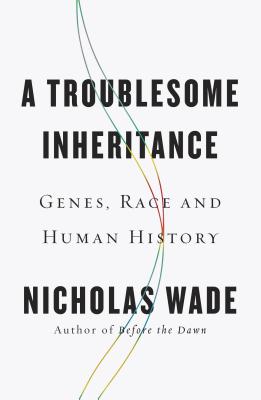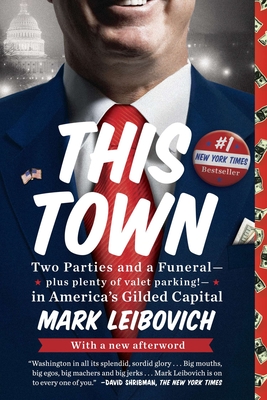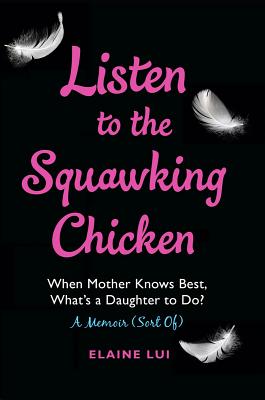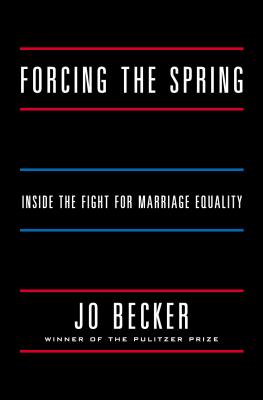Drawing on startling new evidence from the mapping of the genome, an explosive new account of the genetic basis of race and its role in the human story
Fewer ideas have been more toxic or harmful than the idea of the biological reality of race, and with it the idea that humans of different races are biologically different from one another. For this understandable reason, the idea has been banished from polite academic conversation. Arguing that race is more than just a social construct can get a scholar run out of town, or at least off campus, on a rail. Human evolution, the consensus view insists, ended in prehistory.
Inconveniently, as Nicholas Wade argues in A Troublesome Inheritance, the consensus view cannot be right. And in fact, we know that populations have changed in the past few thousand years—to be lactose tolerant, for example, and to survive at high altitudes. Race is not a bright-line distinction; by definition it means that the more human populations are kept apart, the more they evolve their own distinct traits under the selective pressure known as Darwinian evolution. For many thousands of years, most human populations stayed where they were and grew distinct, not just in outward appearance but in deeper senses as well.
Wade, the longtime journalist covering genetic advances for The New York Times, draws widely on the work of scientists who have made crucial breakthroughs in establishing the reality of recent human evolution. The most provocative claims in this book involve the genetic basis of human social habits. What we might call middle-class social traits—thrift, docility, nonviolence—have been slowly but surely inculcated genetically within agrarian societies, Wade argues. These “values” obviously had a strong cultural component, but Wade points to evidence that agrarian societies evolved away from hunter-gatherer societies in some crucial respects. Also controversial are his findings regarding the genetic basis of traits we associate with intelligence, such as literacy and numeracy, in certain ethnic populations, including the Chinese and Ashkenazi Jews.
Wade believes deeply in the fundamental equality of all human peoples. He also believes that science is best served by pursuing the truth without fear, and if his mission to arrive at a coherent summary of what the new genetic science does and does not tell us about race and human history leads straight into a minefield, then so be it. This will not be the last word on the subject, but it will begin a powerful and overdue conversation.
Inconveniently, as Nicholas Wade argues in A Troublesome Inheritance, the consensus view cannot be right. And in fact, we know that populations have changed in the past few thousand years—to be lactose tolerant, for example, and to survive at high altitudes. Race is not a bright-line distinction; by definition it means that the more human populations are kept apart, the more they evolve their own distinct traits under the selective pressure known as Darwinian evolution. For many thousands of years, most human populations stayed where they were and grew distinct, not just in outward appearance but in deeper senses as well.
Wade, the longtime journalist covering genetic advances for The New York Times, draws widely on the work of scientists who have made crucial breakthroughs in establishing the reality of recent human evolution. The most provocative claims in this book involve the genetic basis of human social habits. What we might call middle-class social traits—thrift, docility, nonviolence—have been slowly but surely inculcated genetically within agrarian societies, Wade argues. These “values” obviously had a strong cultural component, but Wade points to evidence that agrarian societies evolved away from hunter-gatherer societies in some crucial respects. Also controversial are his findings regarding the genetic basis of traits we associate with intelligence, such as literacy and numeracy, in certain ethnic populations, including the Chinese and Ashkenazi Jews.
Wade believes deeply in the fundamental equality of all human peoples. He also believes that science is best served by pursuing the truth without fear, and if his mission to arrive at a coherent summary of what the new genetic science does and does not tell us about race and human history leads straight into a minefield, then so be it. This will not be the last word on the subject, but it will begin a powerful and overdue conversation.
Tim Russert is dead.
But the room was alive.
Big Ticket Washington Funerals can make such great networking opportunities. Power mourners keep stampeding down the red carpets of the Kennedy Center, handing out business cards, touching base. And there is no time to waste in a gold rush, even (or especially) at a solemn tribal event like this.
Washington—This Town—might be loathed from every corner of the nation, yet these are fun and busy days at this nexus of big politics, big money, big media, and big vanity. There are no Democrats and Republicans anymore in the nation’s capital, just millionaires. That is the grubby secret of the place in the twenty-first century. You will always have lunch in This Town again. No matter how many elections you lose, apologies you make, or scandals you endure.
In This Town, Mark Leibovich, chief national correspondent for The New York Times Magazine, presents a blistering, stunning—and often hysterically funny—examination of our ruling class’s incestuous “media industrial complex.” Through his eyes, we discover how the funeral for a beloved newsman becomes the social event of the year. How political reporters are fetishized for their ability to get their names into the predawn e-mail sent out by the city’s most powerful and puzzled-over journalist. How a disgraced Hill aide can overcome ignominy and maybe emerge with a more potent “brand” than many elected members of Congress. And how an administration bent on “changing Washington” can be sucked into the ways of This Town with the same ease with which Tea Party insurgents can, once elected, settle into it like a warm bath.
Outrageous, fascinating, and destined to win Leibovich a whole host of, er, new friends, This Town is must reading, whether you’re inside the Beltway—or just trying to get there.
But the room was alive.
Big Ticket Washington Funerals can make such great networking opportunities. Power mourners keep stampeding down the red carpets of the Kennedy Center, handing out business cards, touching base. And there is no time to waste in a gold rush, even (or especially) at a solemn tribal event like this.
Washington—This Town—might be loathed from every corner of the nation, yet these are fun and busy days at this nexus of big politics, big money, big media, and big vanity. There are no Democrats and Republicans anymore in the nation’s capital, just millionaires. That is the grubby secret of the place in the twenty-first century. You will always have lunch in This Town again. No matter how many elections you lose, apologies you make, or scandals you endure.
In This Town, Mark Leibovich, chief national correspondent for The New York Times Magazine, presents a blistering, stunning—and often hysterically funny—examination of our ruling class’s incestuous “media industrial complex.” Through his eyes, we discover how the funeral for a beloved newsman becomes the social event of the year. How political reporters are fetishized for their ability to get their names into the predawn e-mail sent out by the city’s most powerful and puzzled-over journalist. How a disgraced Hill aide can overcome ignominy and maybe emerge with a more potent “brand” than many elected members of Congress. And how an administration bent on “changing Washington” can be sucked into the ways of This Town with the same ease with which Tea Party insurgents can, once elected, settle into it like a warm bath.
Outrageous, fascinating, and destined to win Leibovich a whole host of, er, new friends, This Town is must reading, whether you’re inside the Beltway—or just trying to get there.
Listen to the Squawking Chicken lays bare the playbook of unusual advice, warnings, and unwavering love that has guided Elaine throughout her life. Using the nine principles that her mother used to raise her, Elaine tells us the story of the Squawking Chicken’s life—in which she walked an unusual path to parent with tough love, humor, and, through it all, a mother’s unyielding devotion to her daughter. This is a love letter to mothers everywhere.
A tour de force of groundbreaking reportage by Pulitzer Prize–winning journalist Jo Becker, Forcing the Spring is the definitive account of five remarkable years in American civil rights history: when the United States experienced a tectonic shift on the issue of marriage equality. Beginning with the historical legal challenge of California’s ban on same-sex marriage, Becker expands the scope to encompass all aspects of this momentous struggle, offering a gripping behind-the-scenes narrative told with the lightning pace of the greatest legal thrillers.
For nearly five years, Becker was given free rein in the legal and political war rooms where the strategy of marriage equality was plotted. She takes us inside the remarkable campaign that rebranded a movement; into the Oval Office where the president and his advisors debated how to respond to a fast-changing political landscape; into the chambers of the federal judges who decided that today’s bans on same-sex marriage were no more constitutional than the previous century’s bans on interracial marriage; and into the mindsets of the Supreme Court judges who decided the California case and will likely soon decide the issue for the country at large. From the state-by state efforts to win marriage equality at the ballot box to the landmark Supreme Court case that struck down a law that banned legally married gay and lesbian couples from receiving federal benefits, Becker weaves together the political and legal forces that reshaped a nation.
Forcing the Spring begins with California’s controversial ballot initiative Proposition 8, which banned gay men and lesbians from marrying the person they loved. This electoral defeat galvanized an improbable alliance of opponents to the ban, with political operatives and Hollywood royalty enlisting attorneys Ted Olson and David Boies—the opposing counsels in the Supreme Court’s Bush v. Gore case—to join together in a unique bipartisan challenge to the political status quo. Despite stiff initial opposition from the gay rights establishment, the case against Proposition 8 would ultimately force the issue of marriage equality all the way to the Supreme Court, transforming same-sex marriage from a partisan issue into a modern crisis of civil rights. Based on singular access to the internal workings of this momentous trial—and enlivened by original interviews with the participants on both sides of the case, many speaking for the first time—Forcing the Spring is at once an emotion-packed tale of love and determination as well as an eye-opening examination of an evidentiary record that federal courts across the nation are now relying on to strike down bans similar to California’s.
Shuttling between the twin American power centers of Hollywood and Washington—and based on access to all the key players in the Justice Department and the White House—Becker offers insider coverage on the true story of how President Obama “evolved” to embrace marriage equality, his surprising role in the Supreme Court battle, and the unexpected way the controversial issue played in the 2012 elections.
What starts out as a tale of an epic legal battle grows into the story of the evolution of a country, a testament and old-fashioned storytelling to move public opinion. Becker shows how the country reexamined its opinions on same-sex marriage, an issue that raced along with a snowballing velocity which astounded veteran political operatives, as public opinion on same-sex marriage flipped and elected officials repositioned themselves to adjust to a dramatically changed environment. Forcing the Spring is the ringside account of this unprecedented change, the fastest shift in public opinion ever seen in modern American politics.
Clear-eyed and even-handed, Forcing the Spring is political and legal journalism at its finest, offering an unvarnished perspective on the extraordinary transformation of America and an inside look into the fight to win the rights of marriage and full citizenship for all.




No comments:
Post a Comment